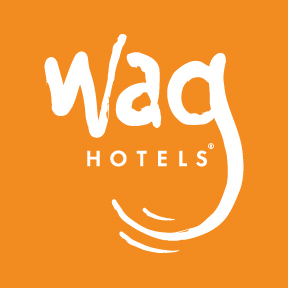Just like humans, our pets’ need socialization as part of a healthy, happy life. However, just as we risk exposure to illness when attending a concert or party, our pets encounter the same risk when socializing. As winter -and flu season- begins, communicable diseases will likely be present anywhere we go, for both humans and pups alike.
As passionate animal lovers who care for our guests like our own pets, we’re here to keep you informed and assure you that we’re taking every possible precaution to keep your fur babies healthy and safe this winter.
Here’s some essential information every pet parent should know to help keep their pet safe:
What is Canine Cough?
Canine “Kennel” Cough (Canine Infectious Respiratory Disease Complex, or CIRDC) is a highly contagious upper respiratory infection that can spread anywhere dogs congregate- this includes dog parks, day cares, and veterinary offices.
While unrelated to the human flu, Canine Cough is similar in that it spreads rapidly and vaccines are not 100% effective at preventing infection.
What causes Canine Cough?
Viruses, bacteria, or any combination of the two can cause Canine Cough. Bordetella bronchiseptica is the bacterium that is most commonly attributed to causing Canine Cough.
How does Canine Cough spread?
Canine Cough is airborne and spread through touching- it can be contracted by simply walking your pet around the block in your own neighborhood. There is a heightened risk of exposure at dog parks, pet stores, or daycare- anywhere groups of dogs play and interact, similar to airplanes, elevators, and offices for pet parents.
What are the symptoms of Canine Cough?
– Persistent Coughing
– Retching/Hacking
– Watery Nasal Discharge
How is Canine Cough prevented?
The most common prevention for canine cough is the Bordetella vaccine. It is important to note that the Bordetella vaccine does not guarantee protection, but instead minimizes the likelihood of infection and decreases symptoms should infection occur.
No pet care professional can ever guarantee that your pup will not be exposed to or infected with Canine Cough, similar to how a doctor or childcare provider cannot guarantee a child won’t get sick when around other children.
What should I do if my dog has symptoms?
We highly encourage clients to bring their pet(s) to the veterinarian for examination if they exhibit any symptoms. A thorough examination will enable your vet to establish whether your dog’s respiratory symptoms are caused by Canine Cough or otherwise.
Important Note: If your dog contracts Canine Cough, Wag Hotels asks that you wait 30 days from diagnosis or provide a veterinary clearance before returning to the facility.
What steps does Wag Hotels take to help reduce transmission?
At Wag Hotels, we take a proactive approach to reducing the transmission of Canine Cough by having:
– A firm vaccination policy;
– Clean-air ventilation systems in all of our boarding & play areas, and
– A world-class cleaning program that effectively kills viruses, bacteria, and other organisms that cause disease.
While dogs not displaying symptoms can make Canine Cough impossible to detect, we proactively monitor all guests for signs of illness and, in the event that a pup becomes sick while in our care, we will isolate them immediately and contact their pet parents.
It is always a good idea to have your pet examined if coughing or abnormal symptoms are noticed. In the same way that a child daycare does not offer compensation if your child catches a cold or the flu, please note that if your dog contracts an illness, Wag Hotels does not offer financial compensation for veterinary bills.
